Climate Equity, Cultural Preservation, and Memory: Honoring Diverse Histories for an Equitable Future
April 13, 2022
This panel is the fourth in Planet Texas 2050’s Resilience Roundtable series exploring various ideas and issues surrounding the City of Austin’s recently adopted Climate Equity Plan. While the Climate Equity plan does not specifically address the preservation of cultural heritage, the City of Austin’s Equity Tool includes an evaluation question focused on cultural preservation. This panel starts with that question about equitable climate strategies: how can they “deliberately and respectfully honor cultural relevance and history to preserve the cultural heritage of the past and present to benefit all generations?”
A distinguished group of panelists from the arts, archaeology, and the City of Austin Parks and Recreation will discuss the role of memory and heritage preservation--especially the stories, cultures, and traditions that are often not given equal status in "official" narratives of our history--in a Climate Equity plan largely focused on development and infrastructure in the future. What elements of cultural preservation should a climate equity plan consider? How might we balance memory with development and resilient infrastructure?
Learn More about the City of Austin Climate Equity Plan >

|
George Belliveau is Head and Professor in the Department of Language and Literacy Education at the University of British Columbia (UBC), Canada. His research focuses on Research-based Theatre and he has published extensively in the areas of theatre & drama education and arts-based research. His latest co-edited book Contact!Unload: Military Veterans, Trauma, and Research-based Theatre (UBC Press, 2020) explores a project with military veterans, artists and counselors. He leads the Research-based Theatre Lab at UBC, an interdisciplinary Research Excellence Cluster sponsored by the Vice-President Research Office. He is a professionally trained actor, and has participated in over 100 theatre productions as an actor, director, or playwright. He was inducted into the College of the Royal Society of Canada (2017). |
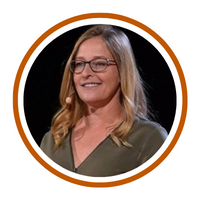
|
Jennifer Chenoweth has a background is in visual art and the humanities. She makes contemporary artworks in any material that fits the idea, from drawings to large sculpture to social practice collaborations. Her recent project the XYZ Atlas mapped how we experience belonging, which culminated in a TEDMED talk released in 2018. She now works for the City of Austin, Texas, curating the Oakwood Cemetery Chapel to consider the purpose of our lives in the context of a historic cemetery. |
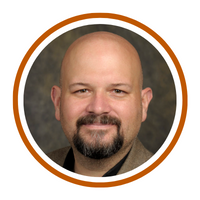
|
Edward González-Tennant earned his PhD in 2011 from the University of Florida. His research focuses on the application of digital technologies in archaeology and history, a transdisciplinary approach combining geographic information systems (GIS), 3D modeling, geophysics, and remote sensing. The use of these technologies allows Dr. González-Tennant to investigate the legacies of racial violence in African American history, how to decolonize collaborative archaeology in the Caribbean, and modeling the impacts of storm surge and sea level rise on heritage resources in rural locations. This work is possible because of a firm commitment to partnering with descendant communities, their allies, and the public. |
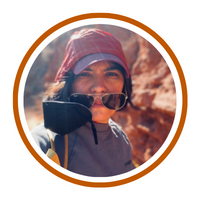
|
mónica teresa ortiz is a poet and freelance writer born and raised in Texas. Currently, ortiz is a journalist in residence with the Freedomways Reporting Project, an artist in residence with UT Austin's Planet Texas 2050 initiative, and a Texas Folklife Community fellow. Their work has been published in the Coffee House Writer's Project, Scalawag Magazine, Annulet, The Thinking Republic, and is forthcoming in Hayden's Ferry Review. |
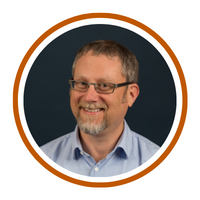
|
Adam Rabinowitz is an Associate Professor in the Department of Classics, the Acting Director of the Institute of Classical Archaeology, and a founding member and current Faculty Chair (2021-22) of the Theme Organizing Committee of the Planet Texas 2050 Grand Challenge. He is an active field archaeologist with a current project at the Greek and Roman site of Histria in Romania, with interests including ancient colonization and the archaeology of food and drink. With colleagues in Geosciences, Geography, and Integrative Biology, he is one of the leaders of the Stories of Ancient Resilience flagship. |
Making in Systems: A Panel Discussion about Networks and Ecological Systems in Art and Science
March 23, 2022
How do artists and scientists think about systems, interconnectedness, and networks in similar and different ways? How can artists and scientists collaborate to increase the visibility of ecological systems?
The panelists in Making in Systems visualize, translate, and study systems and networks through living sculpture, recycled materials, coded environments, and hydrology mapping. They materially and conceptually engage with systems of water, historical exploitation of people and landscape, and recycling, as well as the collapse of systems.
Visualizing river networks and systems allows Paola Passalacqua to understand the development and evolution of these landscapes. In Christopher Lin's Earth to Earth (Dust to Dust), earthworms reconstitute decaying organic material such as currency and symbolic flowers into fertile soil. As the currency is consumed, seeds germinating from this composted material sprout webbed networks of roots hinting at regeneration and regrowth in this visualized future. Everest Pipkin's Worm Room is a first-person greenhouse exploration game. As you wander through an endless series of glasshouses populated by generative plants sourced from public-domain botanical illustrations, one is faced with the idea that in the future this web-based plant room might be the only way to interact with various species. In Hannah Chalew's Embodied Emissions, paper made of plastic and sugarcane, with ink made from oak galls and shells, creates a complex image examining the legacies of exploitation of people and landscape from the time of colonization and plantations into our current petrochemical age.
Research, art, knowledge, understanding, and change are all nodes in a complex system.
In this age of environmental collapse, artists and scientists are uniquely capable of harnessing anxiety into data and imagery. Science analyzes systems at their source, disseminating information that artists can filter and reprocess. Data can be remixed, visualized, and translated into sculpture/code/painting to change our awareness of the interconnectedness of systems. Networks theory, for example, is an interdisciplinary tool that can be used to consider a wide range of systems: ecological, biological, coastal, social, and internet. Visualizing patterns helps us understand them.
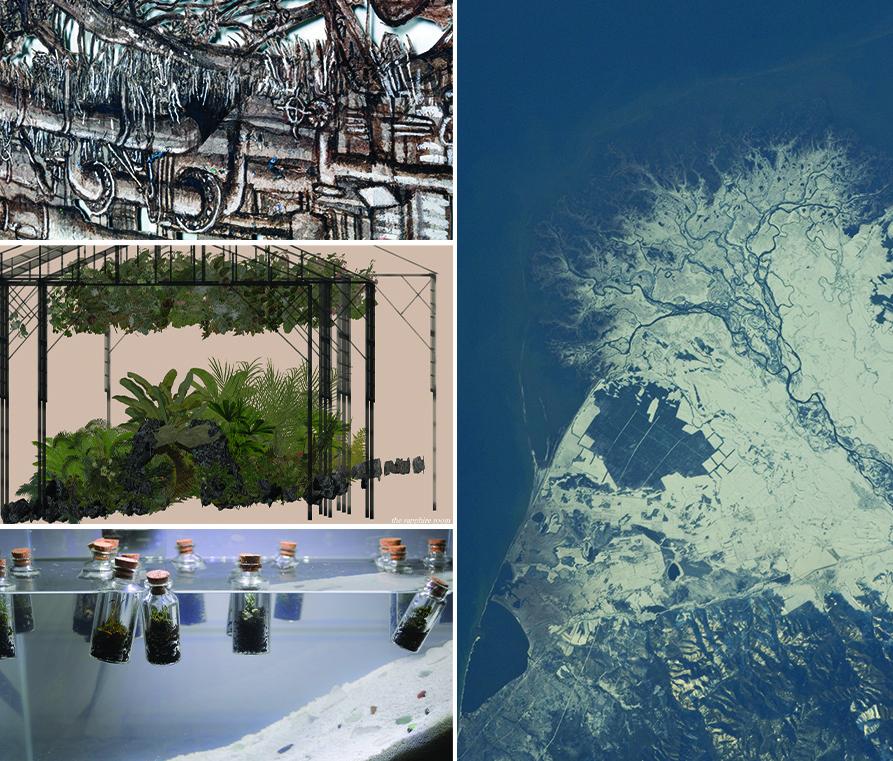
Panelists
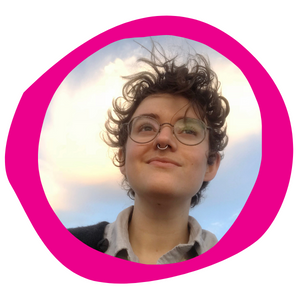
|
Everest Pipkin is a writer, game developer and software artist from Central Texas whose work follows themes of ecology, information theory, and system collapse. As an artist and as a theorist, they fundamentally believe in the liberatory capacity of care; care not as an abstract emotion but rather as a powerful force that motivates collective work towards a better world. |
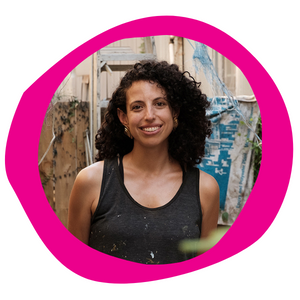
|
Hannah Chalew is an artist, educator and environmental activist raised and currently working in New Orleans. Her artwork explores what it means to live in a time of global warming with a collective uncertain future, and specifically what that means for those of us living in Southern Louisiana. Her practice explores the historical legacies that got us here to help imagine new possibilities for a livable future. She received her BA from Brandeis University in 2009, and her MFA from the Cranbrook Academy of Art in 2016. Chalew has exhibited widely around New Orleans and has shown around the country at the Laumeier Sculpture Park, St. Louis, MO; Wave Hill Public Garden and Cultural Center, Bronx, NY; Minnesota Center for the Book Arts, Minneapolis, MN; Dieu Donné, New York, NY; Asheville Museum of Art, Asheville, NC, and other venues. Her work is held in the collections of the City of New Orleans and the Ogden Museum of Southern Art. |

|
Christopher Lin is a Brooklyn-based artist and educator with a background in research science. Fueled by a lifelong obsession with fossils, his experimental installations, sculptures, and performances question the world we inhabit and envision the one we will leave behind. |
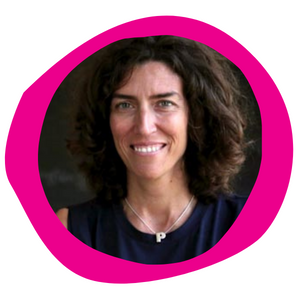
|
Paola Passalacqua is an Associate Professor of Environmental and Water Resources Engineering in the Civil, Architectural and Environmental Engineering Department at the University of Texas at Austin. She graduated summa cum laude from the University of Genoa, Italy, with a BS (2002) in Environmental Engineering, and received a MS (2005) and a PhD (2009) in Civil Engineering from the University of Minnesota. Her research interests include network and deltaic systems, lidar and satellite imagery analysis, multi-scale analysis of hydrological processes, and quantitative analysis and modeling of landscape forming processes. At the University of Texas at Austin, she teaches undergraduate courses in Hydraulics and Hydrology, and a graduate course in Stochastic Hydrology. Dr. Passalacqua has been honored with the National Science Foundation CAREER Award (2014) and several teaching awards including the Dean's Award for Outstanding Teaching by an Assistant Professor (2015) and the Association of Environmental Engineering and Science Professors (AEESP) Award for Outstanding Teaching in Environmental Engineering and Science (2016). |
Moderator
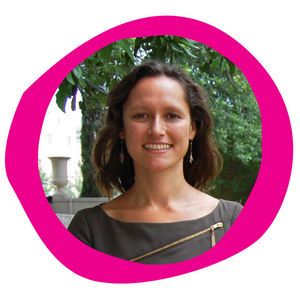
|
Heather Houser is Professor of English at The University of Texas at Austin and teaches and writes about the environment, science, and 21st-century US culture. Her books are Infowhelm: Environmental Art & Literature in an Age of Data (Columbia, 2020) and Ecosickness in Contemporary U.S. Fiction: Environment and Affect (Columbia 2014), and her articles have appeared in a variety of academic journals and public venues. She is a co-founder of Planet Texas 2050 and served as Chair of the Organizing Committee in 2019-2020. |
Panel Discussion Two: Resilience Hubs: Designing Critical and Equitable Community Infrastructure in Response to Climate Disasters
February 16, 2022
When Winter Storm Uri hit Texas in February 2021, it exposed the vulnerabilities in our water and energy systems, but also the unequal vulnerabilities in our communities along the lines of income, housing status, immigration status, race, age, and disability. In the aftermath of the storm, an idea that gained traction among a suite of solutions is the development of “Resilience Hubs.” As community-serving facilities designed to support residents and coordinate resource distribution and services before, during, or after a disruption, resilience hubs, if designed well, can equitably enhance community resilience while reducing greenhouse gas emissions and improving local quality of life. The City of Austin is currently planning the design and implementation of resilience hubs in different parts of the city. It is imperative to center equity in the process of developing community infrastructure in order to best prepare and respond to future climate disasters such as heat, flooding, wildfires, and cold.

|
|
|
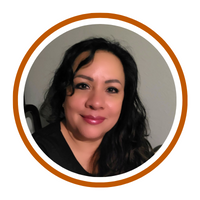
|
Frances Acuña is the Climate Resilience Lead Organizer for Go Austin/Vamos Austin (GAVA). She has lived in southeast Austin for 25 years. She began advocating for the Dove Springs community in 2010 and in 2012, she became a Texas Certified Community Healthworker and started getting involved with GAVA as a community leader. She also worked with fellow community members serving as first responders during the October 2013 and 2015 floods in Dove Springs. In 2017, Frances joined GAVA as a Community Organizer where she worked to increase access to healthy food and physical activity. Later, with continued floods and residents being displaced due to flooding and infrastructure issues, she became the Climate Resilience Lead Organizer where she concentrates her efforts bridging the communication gap between residents and stakeholders, emphasizing response and responsibility where equity and public safety is a mutual priority. When she is not spending her time in the community organizing or meeting with stakeholders, you can find her in her garden or spending time with her family. |
|
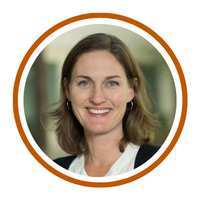
|
Katherine Lieberknecht is an assistant professor in the School of Architecture at The University of Texas at Austin. She researches urban water resources planning, metropolitan-scaled green infrastructure planning, and urban climate planning. Dr. Lieberknecht teaches courses on sustainable land use planning, water resources planning, and urban ecology. Prior to joining the faculty, she worked in regional land conservation. She received her Bachelor of Science in Biology from the College of William and Mary, a Master in Environmental Management from Yale University, and a Ph.D. in City and Regional Planning from Cornell University. Dr. Lieberknecht was the inaugural chair of Planet Texas 2050, The University of Texas at Austin's first grand challenge research program. She is the faculty lead for the Texas Metro Observatory, a Planet Texas 2050 research project and co-lead for the Planet Texas 2050 Flagship Project Equitable and Regenerative Cities in a Post-Carbon Future. |
Panel Discussion One: Linking Equity, Research, and Implementation: Climate Planning in Austin
January 19, 2022
In this first edition of our Resilience Roundtable series, our panelists will provide the backstory for how Austin’s climate equity plan came together and ways in which researchers and local communities can be involved to help ensure equity throughout the plan’s implementation process. The format includes time for Q&A and a generative discussion towards brainstorming ideas for action.
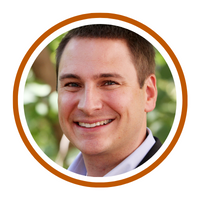
|
|
|
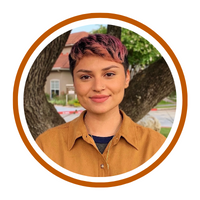
|
Celine Rendon is passionate about sustainability education and racial equity. She is the Texas Project Specialist at EcoRise where she supports the utilization of GIS mapping and data visualization to build coalitions at the local, state and national level and identify strategies for effectively serving marginalized communities. Prior to joining EcoRise, Celine was the Community Engagement Specialist with the Office of Sustainability, supporting the development and community involvement of Austin’s 2021 Climate Equity Plan. Celine has a BS in Environmental Science and a Bridging Disciplines certificate in Public Policy from the University of Texas at Austin. In her spare time, Celine enjoys film photography, gardening, and DIY projects | |
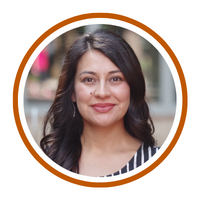
|
Miriam Solis, PhD, MCP, is an Assistant Professor of Community and Regional Planning at the University of Texas at Austin. Her research focuses on infrastructure planning and design. She is on the leadership team of Planet Texas 2050, UT’s campus-wide grand challenge research initiative. In 2020, she served on the City of Austin Climate Equity Plan Sustainable Building’s committee. Raised in California’s Central Valley, Dr. Solis is a first generation college graduate and the proud daughter of working-class Mexican immigrants. She received her doctorate in City and Regional Planning from the University of California, Berkeley. Prior to her faculty appointment, Dr. Solis was a Robert and Patricia Switzer Foundation Environmental Fellow, and worked for the cities of San Francisco, New York, and Richmond, CA. | |

|
Shane Johnson is the Sierra Club Lone Star Chapter's Clean Energy Distributed Organizer, primarily supporting community pressure to transition cities in Texas to be powered by clean, renewable energy, as well as leading organizing at the state-level to fix the Texas grid. Shane was the lead organizer for the #FixTheGrid People's Hearing that provided a platform for Texans to tell Texas's so-called leaders what they lived through during the February black outs, and he subsequently led a Town Hall and a rally to pressure the Public Utility Commission to start listening to the public to actually "fix" the Texas grid. Recently, Shane served as a co-chair of the Steering Committee of the City of Austin's ambitious Climate Equity Plan, propelling a shift in city planning to center racial equity to begin addressing climate change's root causes like systemic racism. Outside of his day-job, Shane served as a volunteer on Austin Justice Coalition's policy team that helped win crucial and unprecedented victories in Austin to fight against police brutality and for systemic criminal justice reform—experience that is actually crucial to fight the climate crisis and fix the Texas grid. Shane grew up in North Austin and Pflugerville, trying to practice the ideal of working in your own communities first. |


